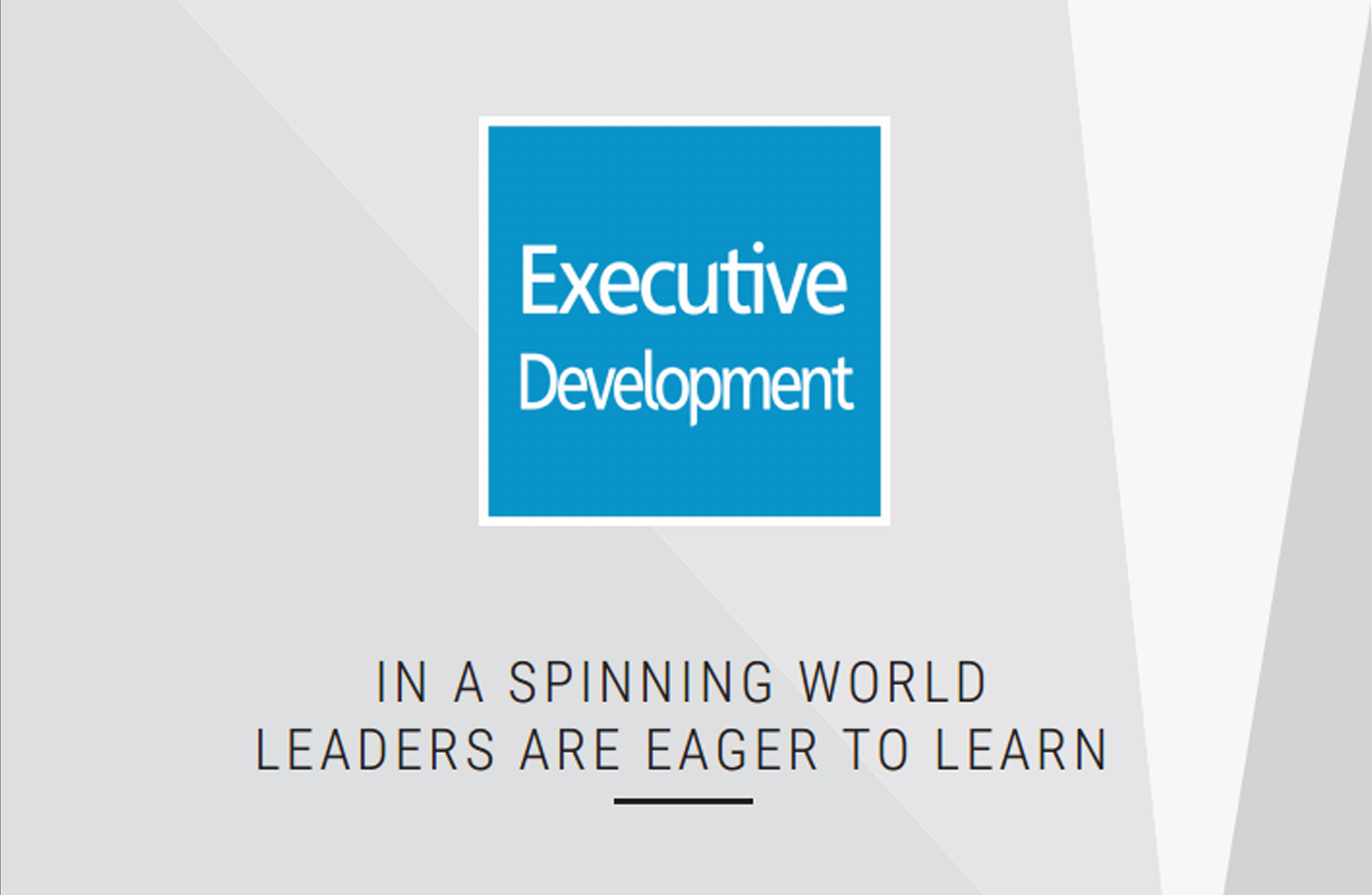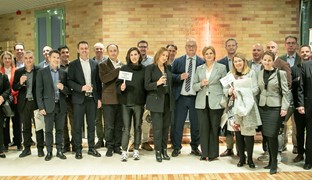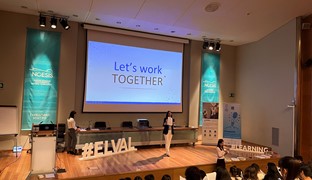Dr. Peter Cappelli at the “The ALBA Leading Scholars Series”
ALBA launched “The ALBA Leading Scholars Series”, with the scope to bring new ideas and perspectives from an international environment into current issues that Senior Executives face in Greece and abroad, to challenge established practices and to create a fruitful dialogue between participants. Addressed issues will derive from different business functions and speakers will be experts in each field.

The inaugural event took place on Monday, December 18th, at 18.30pm, and the first speaker to challenge our guests’ thinking in the area of Agile Project Management was Dr. Peter Cappelli, the George W. Taylor Professor of Management at The Wharton School & Director of Wharton’s Center for Human Resources, named as one of the top 20 HR international thinkers.
The lecture participants were the first to be exposed to insights on “Agile Project Management in the era of the Agile Revolution”, before Dr. Cappelli’s paper on this topic, co-authored with Anna Tavis, appears in the March issue of Harvard Business Review.
While opening up the series and the inaugural event, the Dean of ALBA Dr. Kostas Axarloglou mentioned: "We live in a time when technology is constantly evolving and changing the way we manage our work, while globalization enlarges the phenomenon of technological development. This means we need to learn new ways to work, to develop what we call learning agility. The learning process is in the ALBA DNA, but our priority is to provide knowledge that are relevant. So we decided to start this series of lectures so as to actively learn and interact with the best scientists and professionals. "
The Associate Dean of Academic Programs & Academic Director of the Executive MBA, Dr Kyriakos Kyriacopoulos, presented Dr. Cappelli and stated among others, that Dr Cappelli’s ideas are innovative and have profoundly influenced the way we see and perceive controversial issues relating to employment and work in modern times.

In his speech, Dr. Cappelli expounded his thinking about the essence of agile project management as a management tool that involves and aligns people, processes and systems into a common path that is compatible with business goals. Changes in business organization, in order to support flexibility, are necessary and affect every aspect of the business.
According to the professor, Agile Project Management is essentially a new management philosophy that focuses on people and communication and leads to constant growth. It is the adoption of new project management systems that are easier, faster and less costly. At the same time, they contribute to the development of innovation within the companies. The difference lies in the fact that, according to this new management approach, the primary role is played by people and their interactions and, secondarily, processes and plans.
Project teams are responsible for decision-making, having the discretion to operate autonomously, while clients are involved in all stages of the process, as well as in decision-making. The allocation of work and the creation of project teams takes place at the time the need arises, not in advance, while the results of the projects and the products are presented to the customer even at their initial stage , for feedback, At the same time they are tested and improved to get their final form - so repetition as a process is equally important. Essentially, project teams are reforming goals and controlling resources.
The Professor concluded his speech by addressing the question of how technology developments affect people's management and evaluation, especially since goals are constantly changing, as does the duration of the projects. Therefore, according to flexible project management, the established assessment procedures by the supervisor should be replaced by others where customers will continually and continuously evaluate people and teams.
The second speech of the series will take place in the first half of 2018.
For more information [email protected]
Our Keynote Speaker

Peter Cappelli is the George W. Taylor Professor of Management at The Wharton School and Director of Wharton’s Center for Human Resources. He is also a Research Associate at the National Bureau of Economic Research in Cambridge, MA, served as Senior Advisor to the Kingdom of Bahrain for Employment Policy from 2003-2005, and since 2007 is a Distinguished Scholar of the Ministry of Manpower for Singapore.
He has degrees in industrial relations from Cornell University and in labor economics from Oxford where he was a Fulbright Scholar. He has been a Guest Scholar at the Brookings Institution, a German Marshall Fund Fellow, and a faculty member at MIT, the University of Illinois, and the University of California at Berkeley.
He was a staff member on the U.S. Secretary of Labor’s Commission on Workforce Quality and Labor Market Efficiency from 1988-’90, Co-Director of the U.S. Department of Education’s National Center on the Educational Quality of the Workforce, and a member of the Executive Committee of the U.S. Department of Education’s National Center on Post-Secondary Improvement at Stanford University.
Professor Cappelli has served on three committees of the National Academy of Sciences and three panels of the National Goals for Education. He was recently named by HR Magazine as one of the top 5 most influential management thinkers and was elected a fellow of the National Academy of Human Resources. He received the 2009 PRO award from the International Association of Corporate and Professional Recruiters for contributions to human resources. He serves on Global Agenda Council on Employment for the World Economic Forum and a number of advisory boards. Professor Cappelli’s recent research examines changes in employment relations in the U.S. and their implications. His publication “Good People Can’t Get Jobs”identifies shortfalls with current hiring practices and training practices and has been excerpted in Time Magazine (online) and reviewed in the Wall Street Journal, The New Yorker, and most major business publications. Related work on managing retention, electronic recruiting, and changing career paths appears in the Harvard Business Review.






